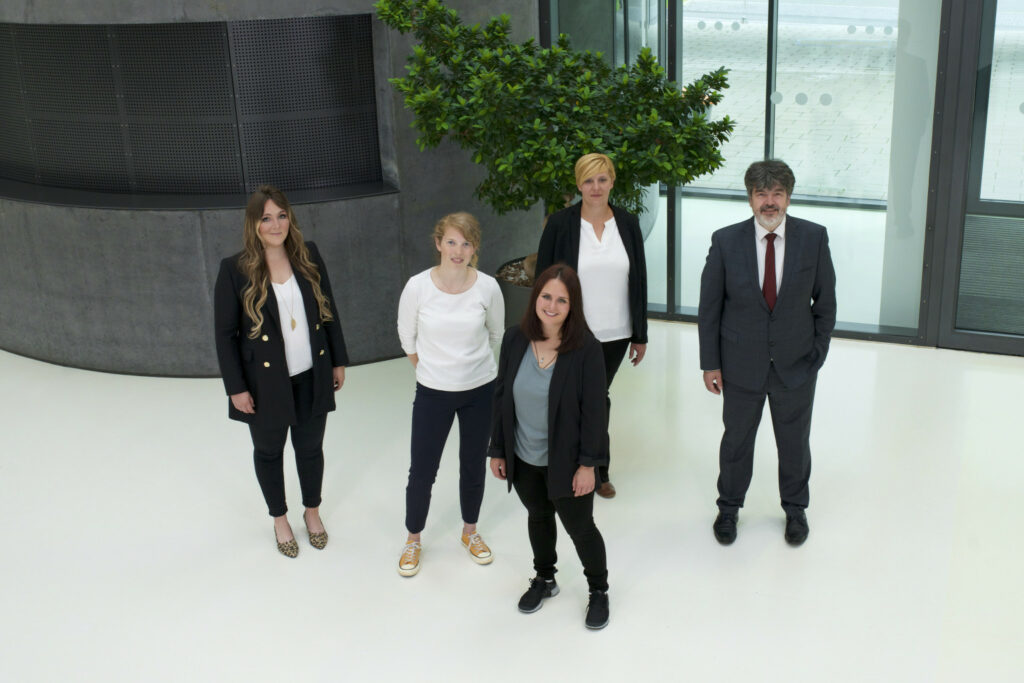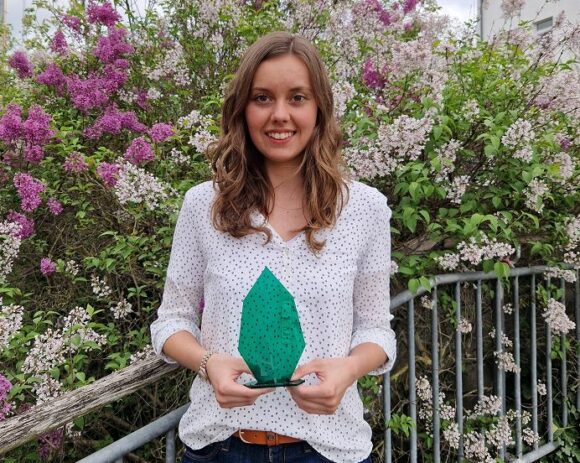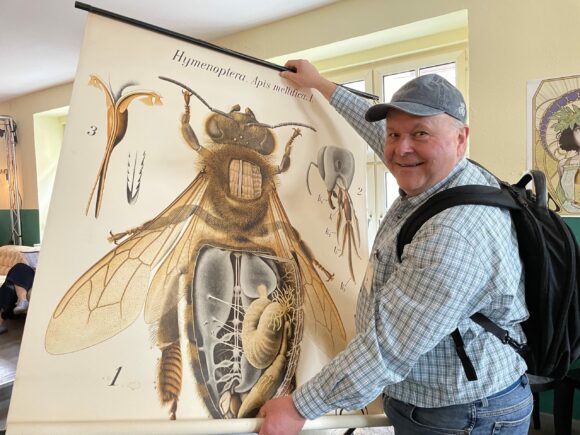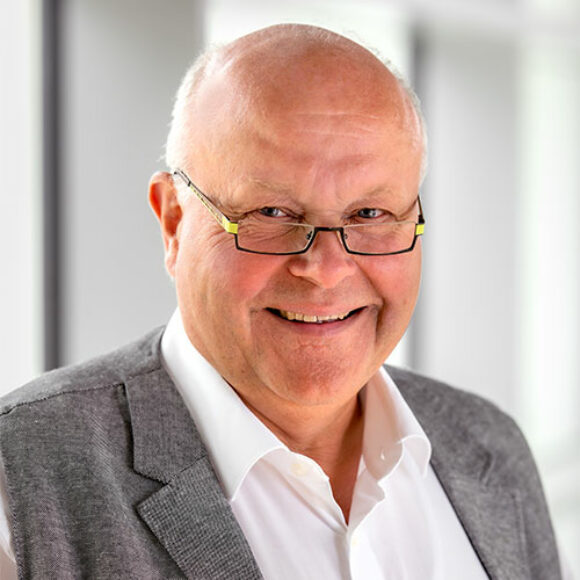Together with a total of eight other partners, Hof University of Applied Sciences plans to launch one of seven Future Centers for Artificial Intelligence throughout Germany. The research group “Innovative Healthcare” at the Institute for Information Systems (iisys), which was newly founded for this purpose, will begin its work with the project Regional Future Center AI “pulsnetz.de -gesund arbeiten” (pulsnetz AI), which aims to develop AI-based technologies for care and social economy and establish them there. A service truck is to make the innovations tangible on site in care facilities, kindergartens and residential facilities for people with disabilities.

Shortage of skilled workers, high fluctuation as well as high physical and psychological stress of employees with simultaneous increase in the number of people in need of care and assistance as well as increasingly complex illness and restriction scenarios: This is the most frequently heard description of the current situation in the social and care economy when talking to those who work there. The Corona crisis at the latest also made it clear that only healthy employees can care for, nurture and support people in need of help. Healthy working conditions are therefore of existential importance for employees in the social and care sector. This is precisely where the pulsnetz KI project comes in. It is intended to directly address caregivers and employees in the education and social sector.
Exploiting the potential of AI-based technology
“We want to develop the competence for employees and managers in small and medium-sized companies in the sector to recognize useful digital or AI-based technologies for their own work, to use them and also to develop them creatively. This relieves them of work themselves, saves them time and strengthens their work organization. In our consortium, we are working on this with partners from Bavaria, Baden-Württemberg, North Rhine-Westphalia and Berlin,” says Prof. Dr. Dietmar Wolff, head of the new research group, explaining the goal of the project.
pulsnet AI as a virtual learning platform
In a first step, the existing platform www.pulsnetz.de will be expanded into a knowledge and learning platform. A digital health assistant based on artificial intelligence will advise and guide employees, specialists and managers on healthy working. Various learning forums on different topics on the website will also offer the opportunity to build Germany-wide and cross-industry communities. In addition, virtual rooms will provide opportunities for digital learning. The virtual rooms and digital networking offered will also show advantages when it comes to attending seminars or trade fairs.
We want to make technology tangible and present artificial intelligence more transparently.”
Sophia Giegold, Research Associate

Service truck aims to visit facilities
However, the digital world cannot replace experiencing and being experienced, the researchers also concede. pulsnetz KI therefore wants to be directly on site at care and social facilities with three mobile service points (trucks)
In this way, we enable uncomplicated on-site testing of the new technologies and break down access barriers.”
Désirée Neeb, Research Associate
Some examples of the technologies on display: heavy loads suddenly feel child’s play when lifted with an “exoskeleton,” a simulation takes employees to relax in nature in seconds – including the scents of flowers and forests. Robots can also be tried out, as can new software systems. The trucks function as a trial workshop where a wide variety of digital applications can be tested. In addition, they serve as a point of contact and advice for all questions relating to digitization.
Individual consulting events and AI garage
To sustainably relieve and strengthen the social economy, pulsnetz KI will also offer on-site consulting events: Through a survey conducted in advance, the consultations are individually adapted to the topics and the digitization status of the respective institution
In addition, our AI experts in the consortium are working on new ways of working, cooperating and learning. This will involve, for example, AI solutions for checking and designing duty rosters or evaluations of AI-based recruiting software. Depending on individual needs, AI entry and application consultations are also available here. In doing so, we rely on the cooperation of both software providers and social institutions.”
Prof. Dr. Dietmar Wolff, research group leader
Nationwide consortium
The pulsnetz KI project is funded by the German Federal Ministry of Labor and Social Affairs and the European Social Fund as part of the “Future Centers KI” funding program. The Future Center, which is being established as part of the Federal Ministry of Labor and Social Affairs (BMAS) funding program “Future Centers (AI) – Supporting Small and Medium-Sized Enterprises and Employees in Model and Participatory Testing of New Technologies, such as Artificial Intelligence, for Operational Practice,” aims to relieve and strengthen employees in the social economy through digital and AI-supported applications. Working toward this goal are:
- AOK Baden-Württemberg
- Employer’s Liability Insurance Association for Health Services and Welfare Care
- CAS Software AG (Karlsruhe)
- Contec GmbH (Bochum/Berlin)
- Diakonisches Werk Baden-Württemberg
- FINSOZ e.V. Association for Information Technologies in Social Economy and Social Administration (Berlin)
- FernUniversität in Hagen – Department of Educational Theory and Media Pedagogy (Germany)
- Hof University of Applied Sciences, Institute for Information Systems (iisys)
- IAT – Institute for Work Science and Technology Management (Stuttgart)
- Association for Digitalization in the Social Economy (vediso e.V.), Stuttgart
Further information
To enable small and medium-sized enterprises and their employees to find local support in the digital transformation, the German Federal Ministry of Labor and Social Affairs (BMAS) is using federal funds to support future centers in western Germany and Berlin. Interested organizations were able to apply for sponsorship of a “Regional Future Center” and/or the higher-level “AI Knowledge and Training Center” by September 30, 2020. Together with the responsible state ministries, the BMAS decided which sponsors or sponsor associations were invited to apply. The German Research Center for Artificial Intelligence GmbH was selected for the superordinate “AI Knowledge and Training Center”. The “Future Centers” started their work at the end of the first quarter and in some cases at the beginning of the second quarter of 2021.







